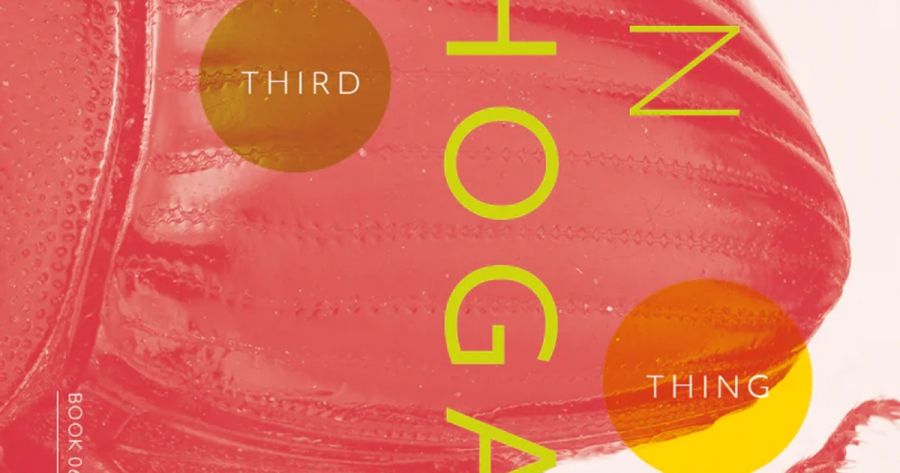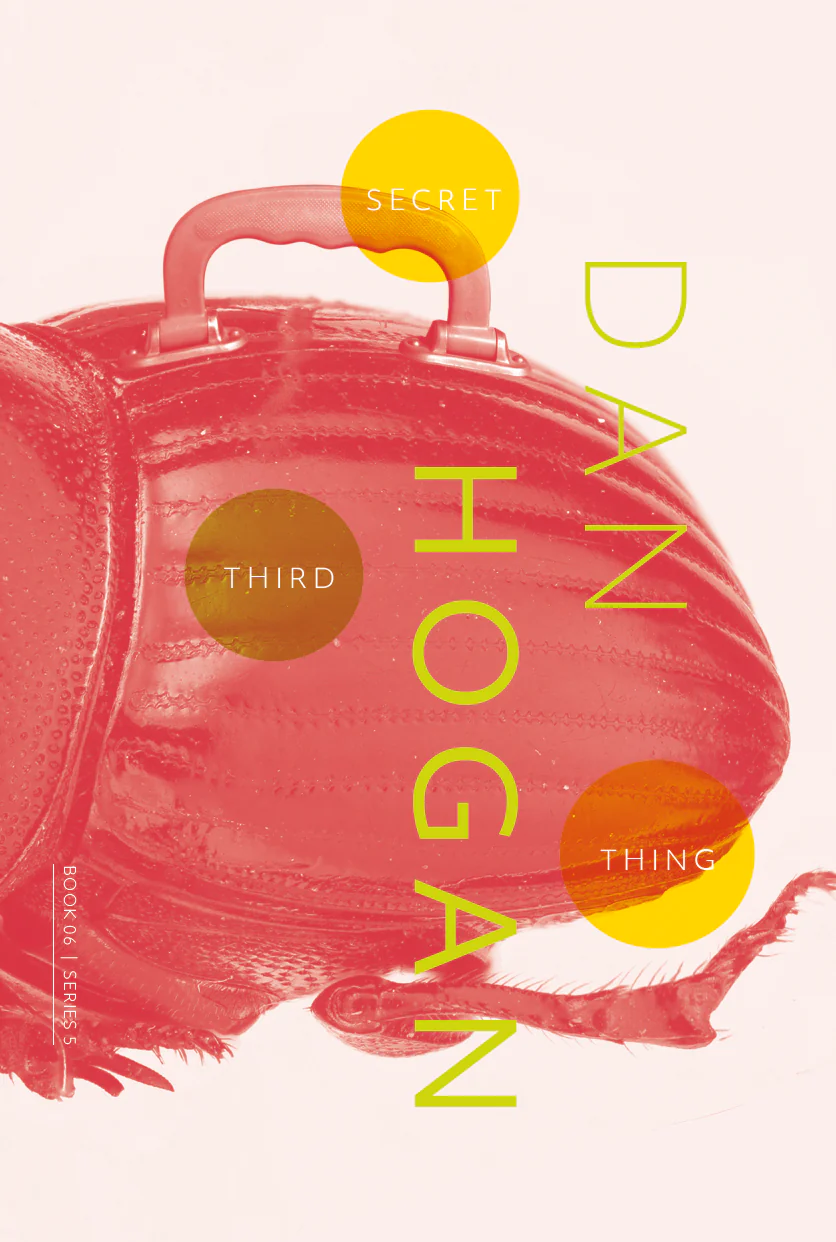
- Free Article: No
- Contents Category: Poetry
- Review Article: Yes
- Article Title: Harnessing the internet
- Article Subtitle: Dan Hogan’s début collection
- Online Only: No
- Custom Highlight Text:
'Anything and everything, all of the time.’ This is the refrain to comedian Bo Burnham’s hilarious and subtly disturbing song ‘Welcome to the Internet’, which both precedes and succeeds endless lists of absurd metadata. The idea is that, naturally enough, we have entered an age that simply has no way to escape the internet. Everything is available to us instantly. And with that, since we no longer live within the binary of either being on or offline, life has become increasingly inextricable from what’s happening ‘over there’.
- Featured Image (400px * 250px):

- Alt Tag (Featured Image): J. Taylor Bell reviews 'Secret Third Thing' by Dan Hogan
- Book 1 Title: Secret Third Thing
- Book 1 Biblio: Cordite, $20 pb, 52 pp
- Book 1 Cover Small (400 x 600):

- Book 1 Cover (800 x 1200):

Oftentimes, what makes these poems successful is that they strike a bathos-like balance of being both jocular and earnest in tone. Each acerbic observation is equally suffused with a moment of carefully timed levity. ‘Dread?’ Hogan asks, ‘It begins with a petition to rename the void / Voidy McVoidface and finishes with a deformation of impetus.’
This book excels most when harnessing that power of the internet and turning it back on itself, as in ‘Creepypasta’, which emphasises the parallels between copy and paste chain messages and capitalist propaganda. It asks: ‘What is an origin story if not capital persevering? / An anxiety supplied by decrepit / (pay)slips in time.’ Such lines as these suggest that, under the rigorous machinations of capitalism, we are always clocked in, a process that can become indistinguishable from being online.
Writing about humour in poetry, Jeffrey McDaniel once said the funniest poems happen when he’s unsure whether the person is serious or not, an ambiguity in which Hogan seems to delight. And why not? After all, such double-speak is what makes us so quintessentially millennial: not wanting to catastrophise or sound too fatalistic, but wanting to entertain and be taken seriously (Hogan even admits to ‘experiencing the impulse to write for an audience’ in the book’s preface). After each joke, we are immediately invited to examine why we enjoyed it: ‘Don’t laugh. This is serious’, and ‘See also: ha. You think this is funny?’ say two lines.
And yet, between these imperatives, there are also such totally puerile moments that one can’t help but laugh. In the sad, relatable, hilariously titled ‘Condition Report_final_FINAL2_updated_FIANL (6)’, the speaker navigates distractions by arguing that ‘Every horse is a neigh sayer’, and being ‘So angry at the sun right now / I can’t even look at it.’ So what is Secret Third Thing then? It’s neither totally funny nor totally serious, because being alive under late capitalism mandates that we are always both, otherwise we’d perish.
Peter Porter once argued that poetry is liberated by its very irrelevance in the market; it seems Secret Third Thing is hyper-aware of this, as it trades whimsically outside convention. Similar to the appropriated corporate jargon that recently punctuated Harry Reid’s Leave Me Alone or the borrowed text of auto-fill in Michael Farrell’s Googlecholia, Hogan uses the received language of internet culture and memes to diagram the absurdity of work (see: bullshit jobs) and language itself. For example, there is a half-cento of a Centrelink call (a cento-link?? anyone??[!!])), a poem composed of PowerPoint slides, and the formless caesura poem ‘A Life of Prizes’, which laments: ‘This world isn’t big enough for the two / Of us / (The Amazon and Amazon)’.
This feels like a much more worthwhile approach than simply writing language poetry, as there is an underpinning purpose to all of it. It is as if to argue that twentieth-century poets used received language to deconstruct syntax, which all become a bit boring and meaningless, so now twenty-first-century poets should be using these same methods to deconstruct the diaphanously perilous bullshit of capital, which is way more sexy and fun.
Even when it comes to identity, the poet takes the same self-reflexive approach. Metonymy is substituted to explore the corners of their gender, which they claim is
[n]ot non-binary in relation to bourgeois conceptualisations
of woman and man and femme and masc but non-binary
as in my interior world doesn’t match the interests
of capital.
One of the most fun and titillating parts of contemporary Australian poetry is that it consistently writes against the impulse to, as Gareth Morgan said, ‘ponder dutifully about the sins of past and present’. Secret Third Thing leans heavily into this resistance. The line breaks, stanzas, and trains of thought seem more spiritually aligned with character limits and doomscrolling than they do with form, metre, or comprehension. Some might call this a disaffected and impenetrable kind of irony that shields itself from criticism; others might call it the poetic reverberations of dolewave, but it ultimately goes beyond all that. It’s a sui generis book that is really damn funny, but which – even more importantly – asks the question: ‘you think this is funny?’


Comments powered by CComment